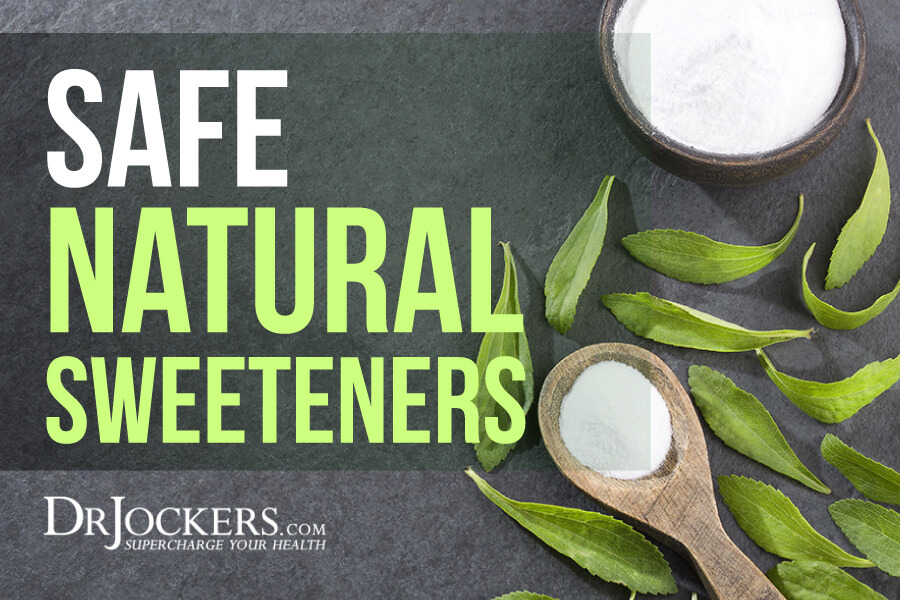
The 8 Safest Natural Sweeteners to Use
Sweet foods were a rare delicacy for our ancient ancestors. Today, we have an unlimited supply of sugary foods and beverages at our disposal. Natural sweeteners can be used effectively in moderation to provide the sweetness that most people crave. Here are the best natural sweeteners ranked in order based on low glycemic index and additional health benefits.
Every living creature is designed to run off of a simple sugar called glucose. It is the primary unit in the study of metabolism. However, there are certainly dangers involved with consuming too much glucose. Those dangers mostly involve elevated blood sugar and insulin which trigger fat accumulation, cellular inflammation and insulin resistance.

Fructose Content in Sweeteners
Fructose is another simple sugar that is found in natural sweeteners such as fruits, honey and plant/tree nectar. This is metabolized differently than glucose and can cause even more hazardous effects when consumed in excess.
Most plant-based sweeteners such as agave nectar are extremely high in fructose. Agave was thought to be one of the good natural sweeteners until health researchers found out the dangers of it’s nearly 80% fructose content.
1. Stevia:
Processed from the leaf of the stevia plant which is native to South America. This herb derivative has no effect on blood sugar, insulin signaling and triglyceride formation. It develops most of its sweetness from glycosides called stevioside and rebaudioside. These compounds are 250-300 times sweeter than sucrose and they have the ability to withstand heat and have a long shelf life (1, 2).
Studies have even shown the stevia leaf to have beneficial effects at improving cellular insulin sensitivity and reduce the risk of type II diabetes and high blood pressure (3, 4). My favorite stevia to use personally is Sweet Leaf stevia in the liquid dropper here I like this brand because it is pure stevia, without any sugar alcohols or other sweeteners added. Most people also like the flavor better as it has less of an aftertaste.
You can find it in a variety of flavors including vanilla, chocolate, hazelnut, cinnamon, English toffee, grape and lemon. If you are noticing an unpleasant aftertaste with the Sweet Leaf brand, than try adding a little bit of sea salt or pink salt (to taste – not too salty) to your recipe using the stevia and this can help remove the after taste. I have seen a lot of people who once “hated” stevia, completely change their opinion after adding the salt.
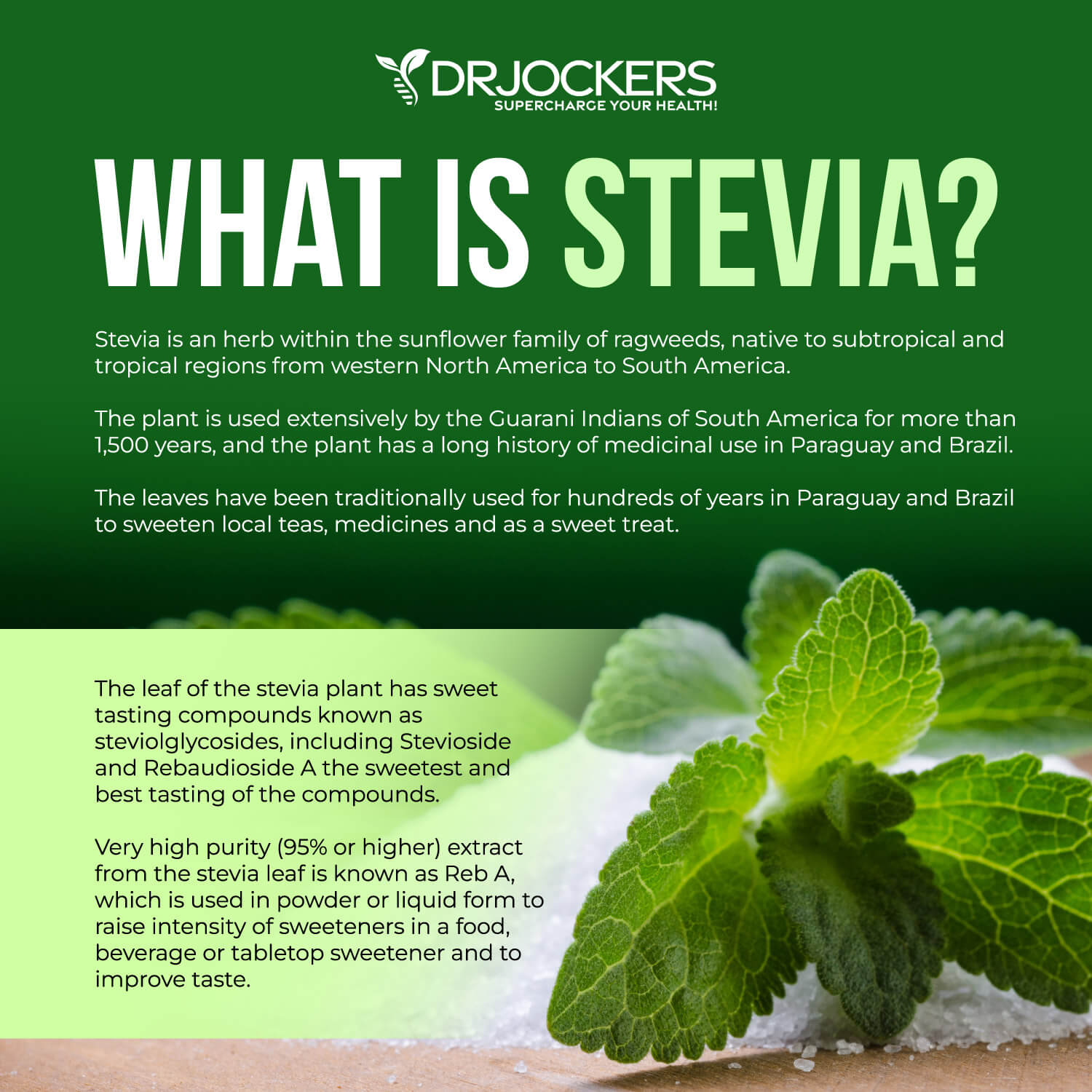
2. Monk Fruit or Lo Han Extract:
Lo Han Extract is also called monk fruit. The monk fruit plant grows native in Southern China/Northern Thailand. Lo Han has a very low glycemic index and low sugar content. It gets the majority of its sweetness from a glycoside nutrient called mogrosides.
These mogrosides are 300 times sweeter than sugar and act as antioxidants that have shown abilities to inhibit cancer cell formation (5, 6). This is a wonderful sweetener but it can be hard to find and expensive. I like Pure Monk Fruit from Julian Bakery because it is the only one I found without other sweeteners such as erythritol.
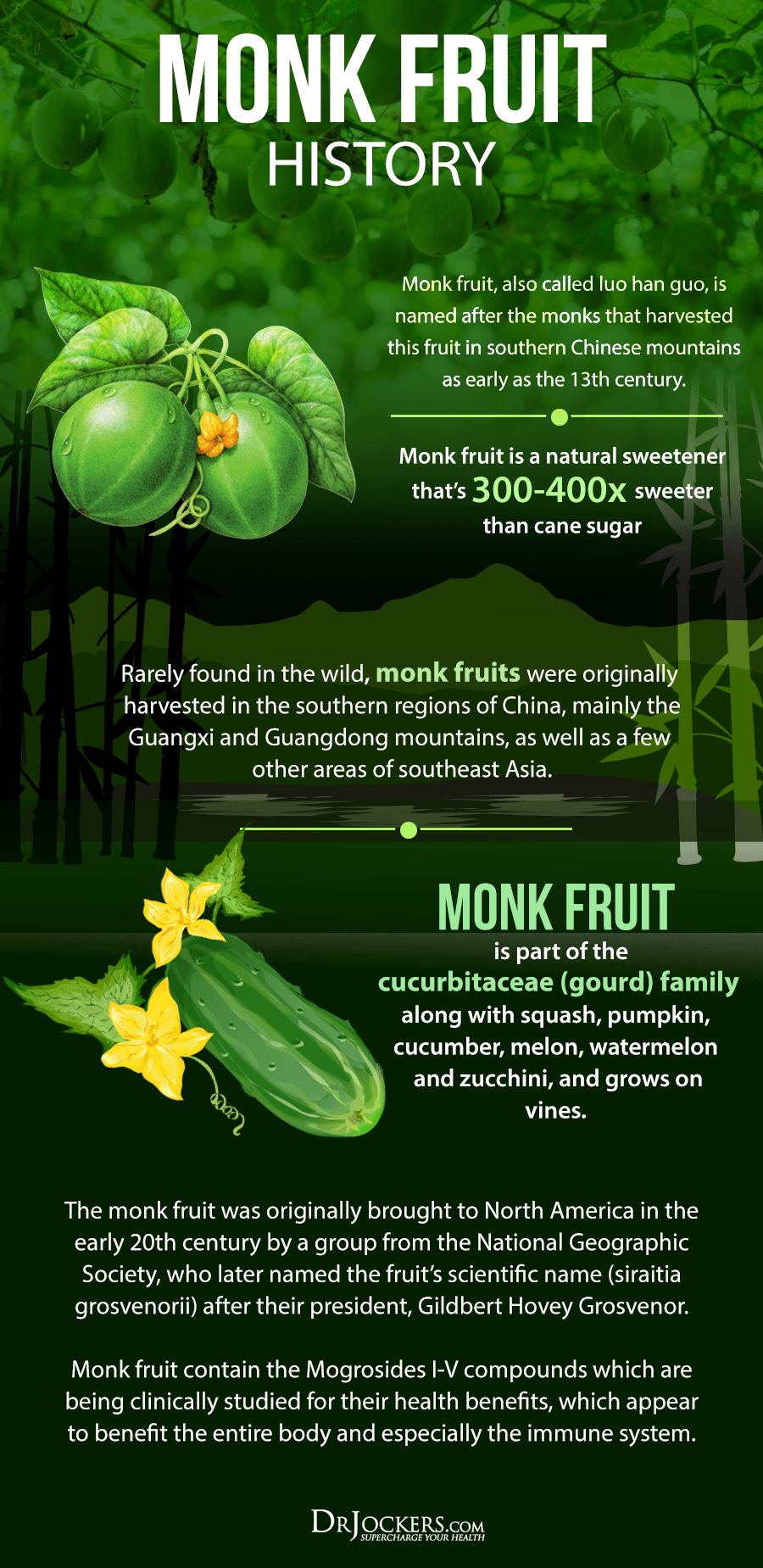
3. Yacon Syrup:
Yacon syrup is extracted from the roots of the Yacon plant which grows throughout the Andes mountains in South America. This plant has a long history as a powerful food that has been eaten and used for medicinal purposes in South America.
Yacon syrup is rich in prebiotic fibers (roughly 40-50%) called inulin and fructooligosacchardes (FOS) which are undigestable by the body but feed healthy gut bacteria (7). Yacon does contain a small amount of sugar through fructose, glucose and sucrose but the rich fiber within it makes it a very low-glycemic sweetener. The use of Yacon syrup has been shown to reduce obesity and insulin resistance (8).
I like Blue Lily’s organic Yacon syrup which is lower glycemic than maple syrup and a great prebiotic for the gut.
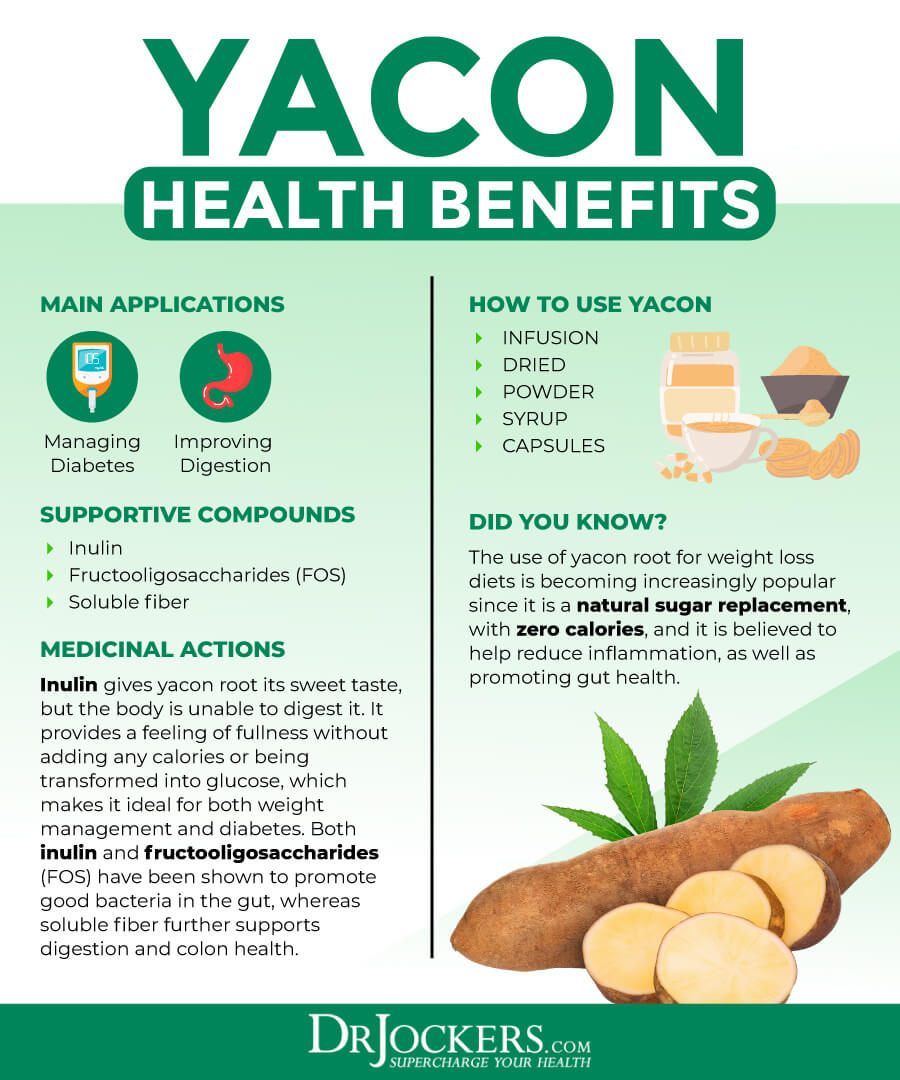
4. Coconut Nectar:
This is a very low glycemic liquid sweetener derived from the liquid sap of the coconut blossoms. It is also called coconut sugar. The glycemic index is 35 making it one of the lowest of natural sweeteners.
Also, the fructose levels are very low at 10% and it contains a wide variety of antioxidants, minerals and other nutrients that enhance blood sugar stability. It can be found in health food stores but is somewhat pricey. Although I really don’t use coconut nectar or coconut sugar, one of the better brands is Coconut Secret here
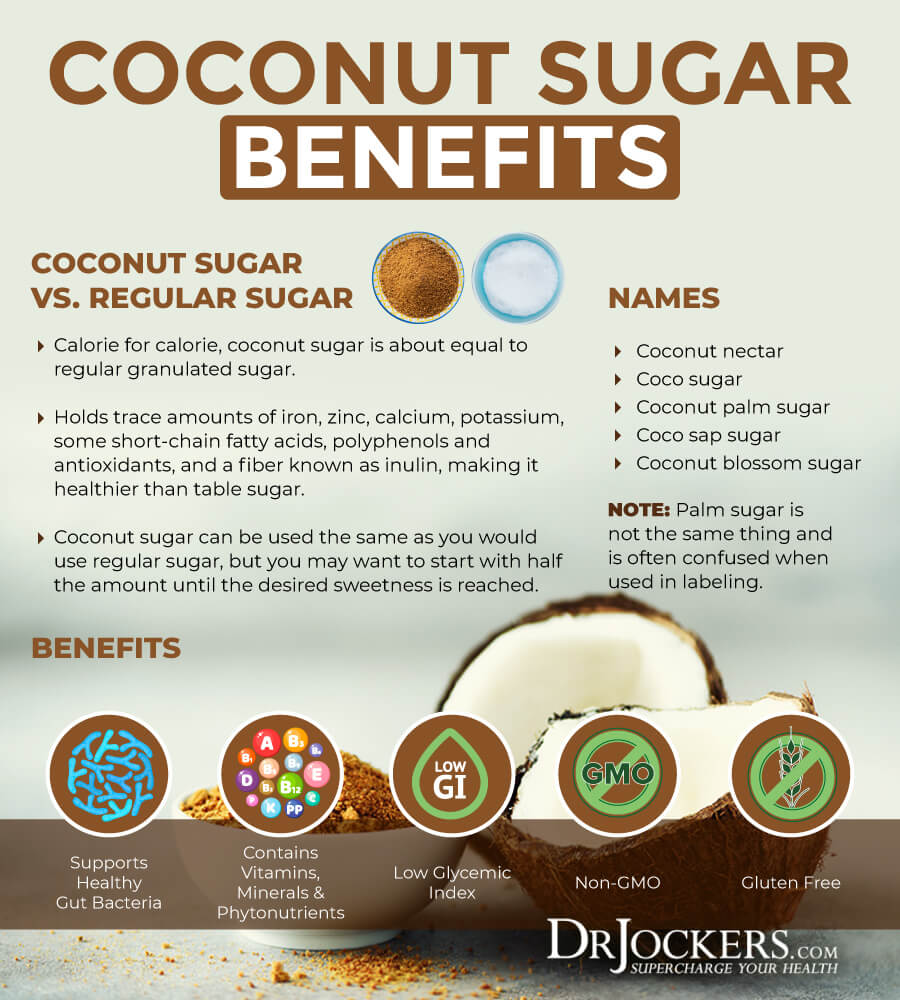
5. Organic, Raw Honey:
This superfood does have an effect on blood sugar and contains approximately 53% fructose so one should only consume this in moderation. Honey contains a wide array of trace minerals such as calcium, iron, zinc, potassium, phosphorous, magnesium, copper, chromium, manganese and selenium. These nutrients are critical for healthy cellular insulin sensitivity and blood sugar balance.
Raw honey is also extremely rich in antioxidants and natural enzymes. Honey contains flavonoid anti-oxidants such as pinocembrin and pinostrobin that help reduce oxidative stress in the body and promote better enzyme activity (9). Finding local raw honey is the best as it contains small amounts of local flower pollen which enhances our bodies ability to adapt to this potential allergen.
It is best to find a local producer so you can get the best locally developed raw honey. If you cannot find a honey producer in your area, than I would use HoneyTrees here
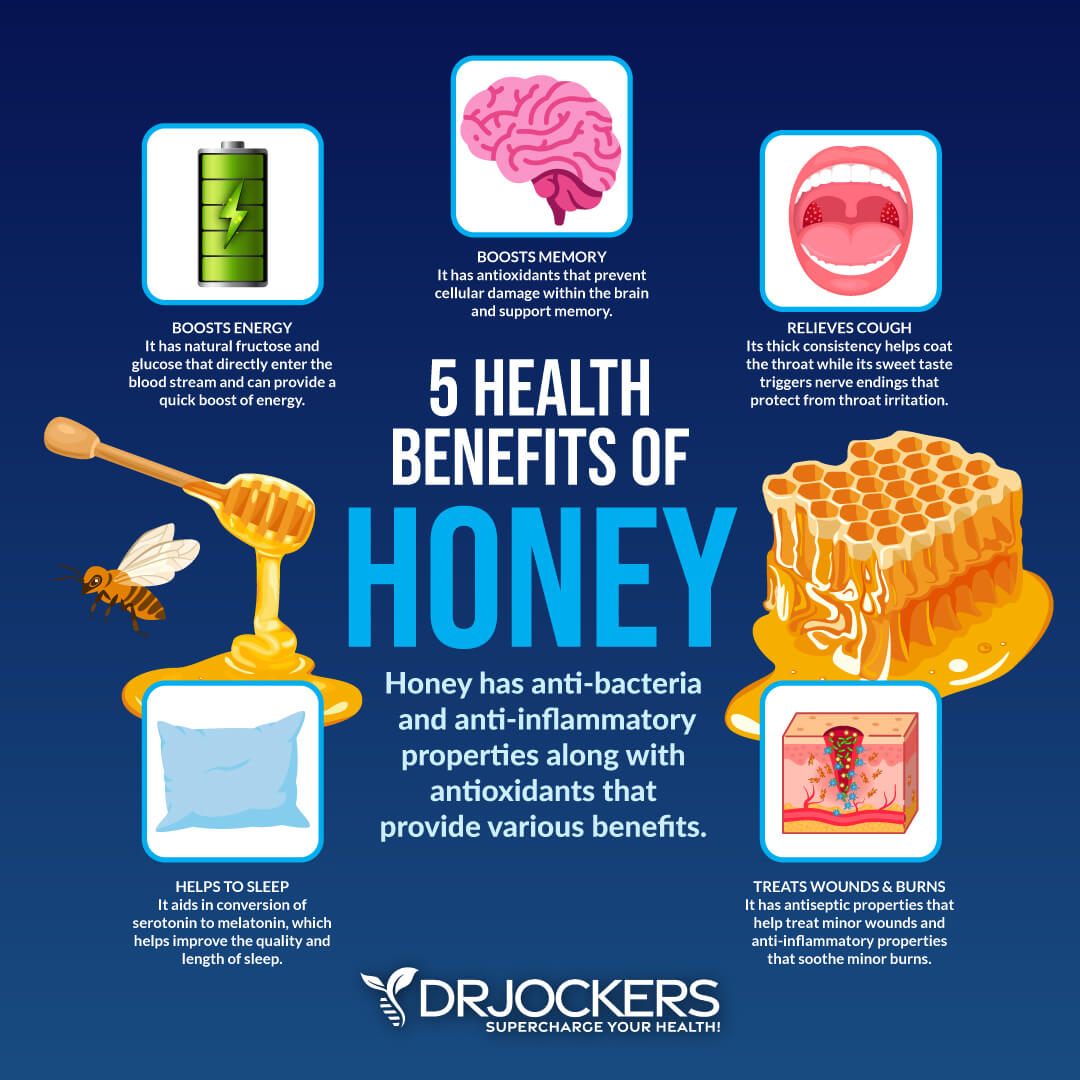
6. Organic Blackstrap Molasses:
Molasses is a byproduct of the processing of sugar. It does have an effect on glycemic index and must only be consumed in moderation. Blackstrap molasses is a very rich source of iron, copper, manganese, potassium, magnesium and selenium.
One of the better brands on the market is Plantation Organic blackstrap molasses
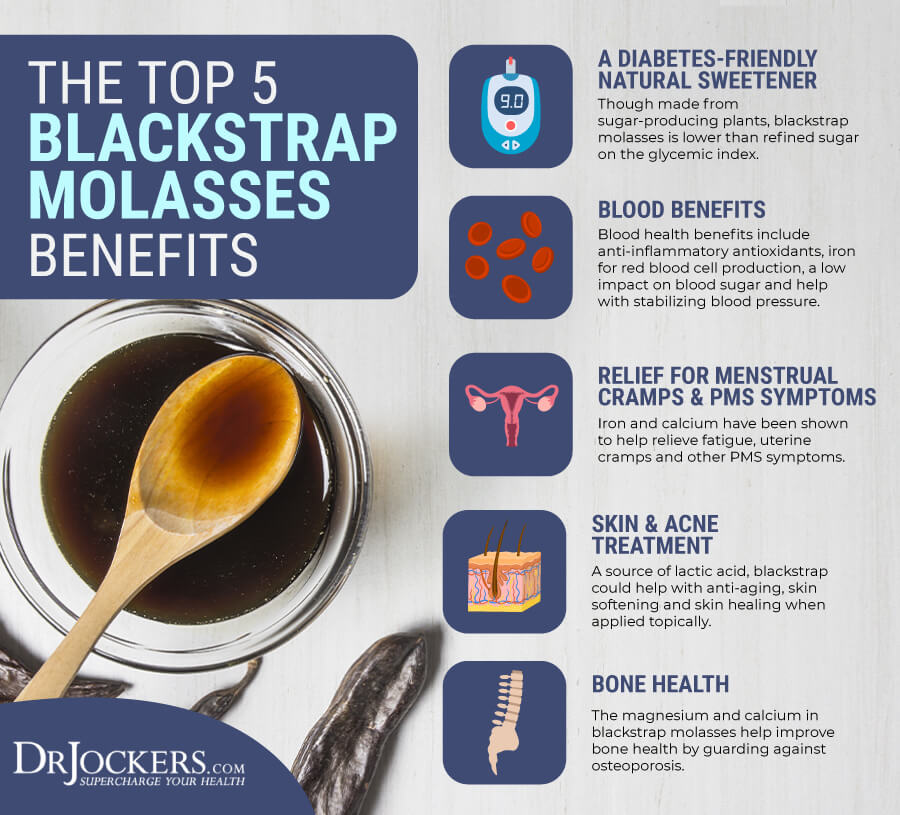
7. Organic Maple Syrup:
This syrup is a dark sap from the xylem of maple trees. It does contain sucrose, glucose & fructose and therefore has an effect on blood sugar and insulin levels. Please use in moderation. Maple syrup contains significant amounts of zinc, calcium, manganese and antioxidant phenol vanillin.
One of the better brands on the market is Crown Maple organic maple syrup here
8. Sugar Alcohols:
These include xylitol, glycerol, sorbitol, maltitol, mannitol, and erythritol. These do occur in nature, however, it is somewhat questionable for us to call them natural sweeteners as they are typically processed more than other sweeteners and often made in a lab.
Sugar alcohol is supposed to just pass through the body unrecognized and metabolized. This causes no blood sugar imbalances and is considered a safe sweetener. However, many individuals have reported significant gastrointestinal distress that includes cramping, bloating, gas & diarrhea (10).
There are many blends of stevia-erythritol and monk fruit with erythritol. If you are noticing unpleasant digestive symptoms with these…it is more than likely the sugar alcohols that are causing it. So be on the lookout.
If you are purchasing erythritol, look for one labeled non-GMO, since this is a corn derived product. If you have a corn sensitivity, be sure to avoid it. A good brand is NOW Foods erythritol here and Xylitol
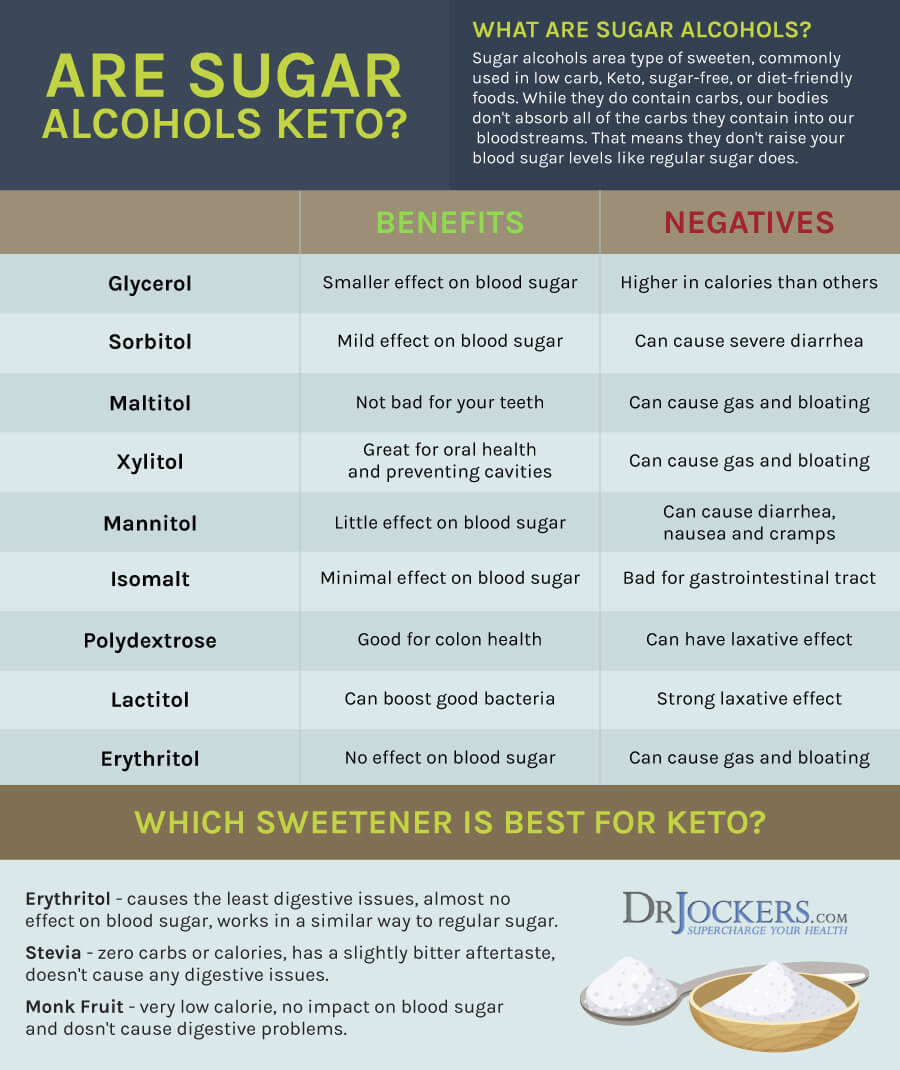
What Does Dr Jockers Do:
I personally use stevia as my main sweetener. I prefer the SweetLeaf brand here or the Pure Monk fruit. I am not against using these other sweeteners as we have many of them in our recipes on DrJockers.com, but I would caution to use them in moderation.
We all love a sweet taste but overconsuming them can lead to increased sugar cravings and blood sugar dysregulation. Be sure to follow the strategies I discuss in this article on buffering blood sugar naturally.
If you want to work with a functional health coach, I recommend this article with tips on how to find a great coach. On our website, we offer long-distance functional health coaching programs. For further support with your health goals, just reach out and our fantastic coaches are here to support your journey.
Inflammation Crushing Ebundle
The Inflammation Crushing Ebundle is designed to help you improve your brain, liver, immune system and discover the healing strategies, foods and recipes to burn fat, reduce inflammation and Thrive in Life!
As a doctor of natural medicine, I have spent the past 20 years studying the best healing strategies and worked with hundreds of coaching clients, helping them overcome chronic health conditions and optimize their overall health.
In our Inflammation Crushing Ebundle, I have put together my very best strategies to reduce inflammation and optimize your healing potential. Take a look at what you will get inside these valuable guides below!
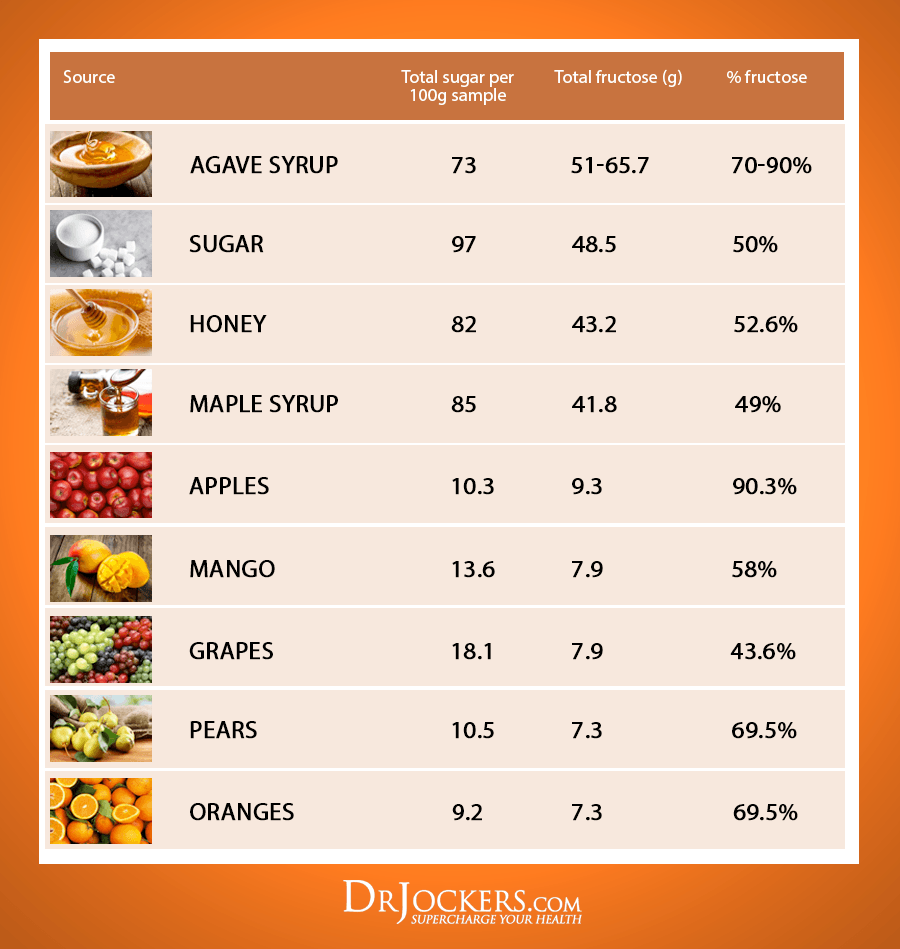
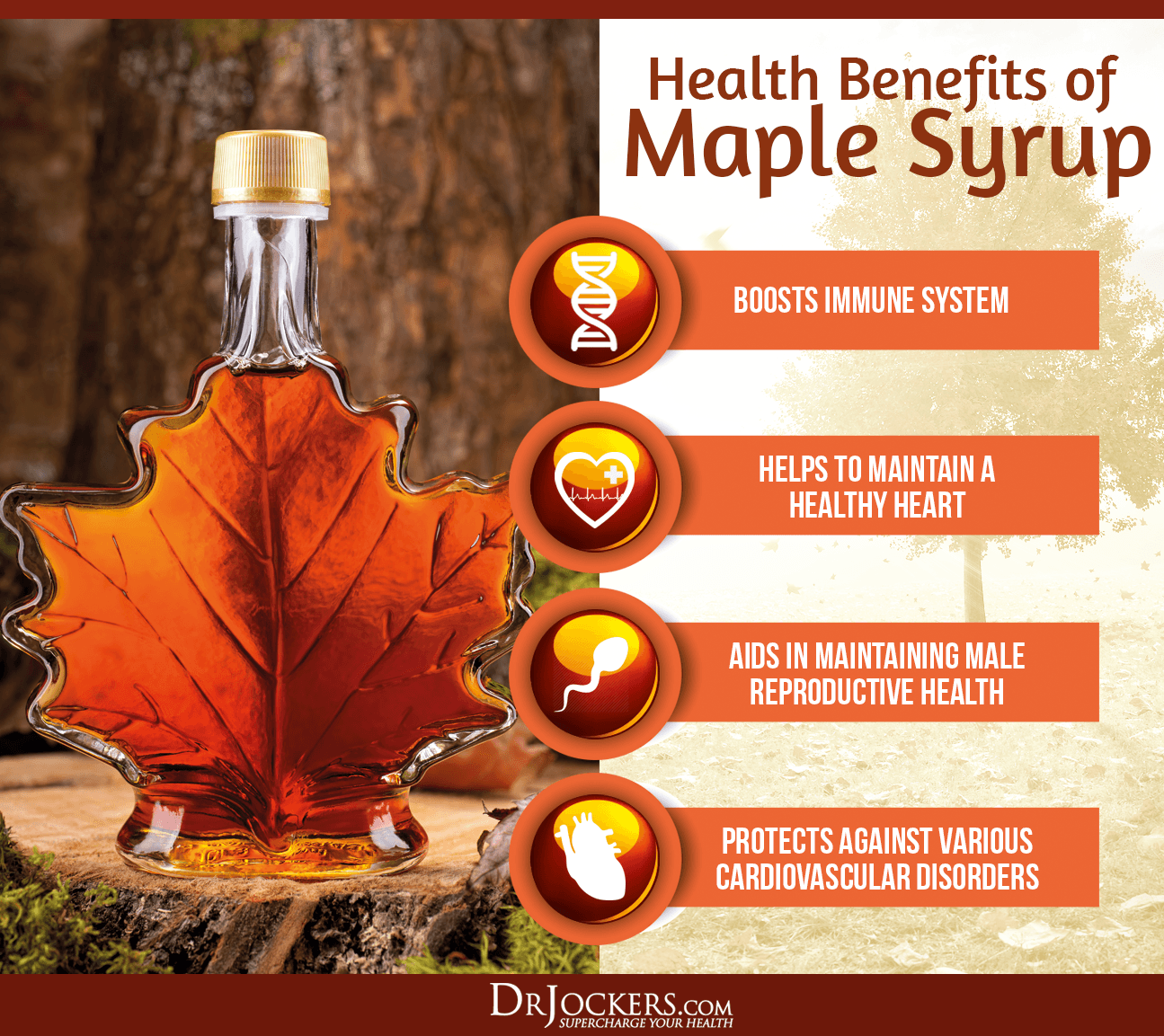




I wish you would address the fiber sweeteners. They are prebiotic also. I use Sweet Perfection. It tastes just like sugar, measures like sugar, and is very easy to work with. Thank you for your work!
Looks like a good product. Inulin and FOS are good stuff. Not sure if that much would be beneficial though. I like to use small amounts of stevia because it is very sweet and you don’t need much.
\https://www.amazon.com/gp/product/B0017WG180/ref=as_li_tl?ie=UTF8&camp=1789&creative=390957&creativeASIN=B0017WG180&linkCode=as2&tag=wellnessmcom-20&linkId=4W66SZYXTBY7SLH5
Thank you so much for all the information you share with us, it’s so important to be aware of the best way to feed ourselves, may you and yours be blessed
Thank you so much Antonieta! I am passionate about making sure my followers know how to navigate the health maze. Blessings to you and your family too!
I have bought monk fruit at Wal Mart. Do not know how pure it is though, but the cost was under 3$ for 40 packets.
This is the only place I have seen it.
Not sure how pure it is if it is from Walmart. I know they sell it at most health food stores.
I’ve seen In The Raw Monk Fruit at Wal-Mart and I wouldn’t buy it. Monk Fruit should be only 1 ingredient (monk fruit). The first ingredient on the packaging said dextrose wwhich since the package was not noted at GMO free…I assume is made from GMO corn.
So grateful for all that you share with us. Bless those little sleep wreckers.
Thank you so much Olivia!
Thank you for this article. I am wondering about your recommendation of “moderation” for using many of the sweeteners. My morning coffee has switched from a Caribou or Starbucks beverage to a 16ounce latte I make myself using raw goat’s milk, a tablespoon of blackstrap molasses and a splash of vanilla extract. I’m wondering how this daily dosage of molasses would compare to your intention of “moderation”.
By moderation I mean – the least amount possible to give you the desired flavor you want. That should be fine with the molasses. If you feel like your blood sugar goes up and you have inflammation and then you drop a few hours later, that would be too much.
Dr. Jockers, have you ever heard of this happening: I used to use the SweetLeaf brand of stevia, but all of the sudden, I started not being able to even taste it. I like to drink hot cups of water and apple cider vinegar and stevia and I started not being able to even taste the sweetness AT ALL, which is very noticeable with ACV…lol. Is this common? I tried a different organic brand of stevia, and I can taste it fine. I like the SweetLeaf and it was readily available for me. Thanks in advance for you response.
Hey Vivian,
That is strange, I have never heard of that. I use sweet leaf stevia most days and it always tastes very sweet. Perhaps you got a bad batch or something.
I haven’t found a Stevia that doesn’t have an aftertaste.
If you add in a pinch of sea or Himilayan salt it can take away the aftertaste.
I’ve tried Stevia in every form possible and it always makes me sick. I get light headed almost instantly then I get a headache and feel disoriented and horrible. I found out that the same thing happens to my son when he tries things with Stevia in them. Is this a rare thing, or more common than I know? Stevia is in so many protein powders and other “health food” things now that I have to really be careful and read ingredient list. Even if it is the last ingredient it affects me, I thought that if it was the last ingredient that may mean there is only a trace of it, so tried and I still react to it.
Hey Jeannette, so sorry to hear this! It is possible to have an allergy or sensitivity to stevia…which you have. Be sure to avoid it and look for monk fruit. We have a link for the pure monk fruit that I recommend in the article.
The chemicals often used to extract Stevia and give us its concentrated form are highly toxic. I’ve read that because of this process, Stevia can be just as bad or worse sometimes than other sweeteners. I do know you can grind the dried leaves into a powder yourself and then won’t get traces of these chemicals, or just use the leaves, although I have never tried it myself. Also, important to note, high amounts of Stevia are connected to causing infertility, so if you’re trying to get pregnant, go easy on the amount of Stevia. On a positive note, very high levels of Stevia can help kill some bacterias that are nearly impossibly to kill such as Lyme.
Have you tried ‘Just Like Sugar’? I believe it is inulin too. Is it ok to use in baking? Loved the article. I did buy the Monk Fruit you recommended.
Hey Leah! I have not tried it but it looks like it could be a good alternative to sugar. Because of the inulin, it may cause digestive issues for some people which is why I prefer the monk fruit!
Hi Dr. Jockers. I have followed your website for years now and really appreciate all the great info. I used to use SweetLeaf brand stevia until I read that the ingredients include “natural flavors”. I then switched to Trader Joe’s brand stevia or better stevia brand.
Thanks for sharing Mary!
Have you heard of BochaSweet? It’s made from the Kabocha squash.
Looks and taste just like sugar . Doesn’t raise blood sugar.
Excellent! Thanks for the insight!
Thank you for mentioning Kabocha Squash, not many know of this very healthy alternative.
I looked for stevia at the grocery store, and they all have something ELSE listed as the first ingredient. Why and what are those things?
This is what we use and recommend: https://amzn.to/2uumLlb
Do you know anything about BochaSweet? Is this safe for consumption?
Yes Jared, This is a great sugar replacement. I recommend this: https://amzn.to/2S7c45u
Thanks for the information. It is so nice to learn what we can do to better our health.
The doctors don’t always tell us these things, therefore it is always good to look at other important ways to help our self. Thanks.
Thanks Marie!
I would really love to know your thoughts on date syrup?
And also date sugar
Not a big fan because it is very high in fructose.
Is Dr. Jockers familiar with the Trim Healthy Mama persuasion? We’ve found it very helpful.